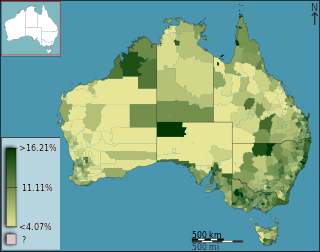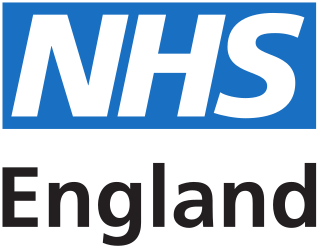Related Research Articles
Medicare is the publicly funded universal health care insurance scheme in Australia operated by the nation's social security agency, Services Australia. The scheme either partially or fully covers the cost of most health care, with services being delivered by state and territory governments or private enterprises. All Australian citizens and permanent residents are eligible to enrol in Medicare, as well as international visitors from 11 countries that have reciprocal agreements for medically necessary treatment.

Alan Milburn is a British politician who was Member of Parliament (MP) for Darlington from 1992 to 2010. A member of the Labour Party, he served for five years in the Cabinet, first as Chief Secretary to the Treasury from 1998 to 1999, and subsequently as Secretary of State for Health until 2003, when he resigned. He briefly rejoined the Cabinet as Chancellor of the Duchy of Lancaster in order to manage Labour's 2005 re-election campaign. He did not seek re-election in the 2010 election. Milburn was chair of the Social Mobility Commission from 2012 to 2017. Since 2015, he has been Chancellor of Lancaster University.
Single-payer healthcare is a type of universal healthcare in which the costs of essential healthcare for all residents are covered by a single public system.

The Ministry of Health is the public service department of New Zealand responsible for healthcare in New Zealand. It came into existence in its current form in 1993.

Health care in Australia operates under a shared public-private model underpinned by the Medicare system, the national single-payer funding model. State and territory governments operate public health facilities where eligible patients receive care free of charge. Primary health services, such as GP clinics, are privately owned in most situations, but attract Medicare rebates. Australian citizens, permanent residents, and some visitors and visa holders are eligible for health services under the Medicare system. Individuals are encouraged through tax surcharges to purchase health insurance to cover services offered in the private sector, and further fund health care.

The National Health Service (NHS) is the publicly funded healthcare system in England, and one of the four National Health Service systems in the United Kingdom. It is the second largest single-payer healthcare system in the world after the Brazilian Sistema Único de Saúde. Primarily funded by the government from general taxation, and overseen by the Department of Health and Social Care, the NHS provides healthcare to all legal English residents and residents from other regions of the UK, with most services free at the point of use for most people. The NHS also conducts research through the National Institute for Health and Care Research (NIHR).
The Lyons Inquiry was an independent inquiry into the form, function and funding of local government in England. Appointed jointly by the Chancellor of the Exchequer and the Deputy Prime Minister in the summer of 2004, Sir Michael Lyons produced several reports over the next 3 years, culminating in a final report on the future of local government published alongside the Chancellor's Budget in March 2007.
Healthcare reform in the United States has a long history. Reforms have often been proposed but have rarely been accomplished. In 2010, landmark reform was passed through two federal statutes: the Patient Protection and Affordable Care Act (PPACA), signed March 23, 2010, and the Health Care and Education Reconciliation Act of 2010, which amended the PPACA and became law on March 30, 2010.
In England, social care is defined as the provision of social work, personal care, protection or social support services to children or adults in need or at risk, or adults with needs arising from illness, disability, old age or poverty. The main legal definitions flow from the National Health Service and Community Care Act 1990, with other provisions covering disability and responsibilities to informal carers. That provision may have one or more of the following aims: to protect people who use care services from abuse or neglect, to prevent deterioration of or promote physical or mental health, to promote independence and social inclusion, to improve opportunities and life chances, to strengthen families and to protect human rights in relation to people's social needs.

Rachel Jane Reeves is a British politician, who is currently serving as the Chancellor of the Exchequer since July 2024. A member of the Labour Party, she has been Member of Parliament (MP) for Leeds West and Pudsey, formerly Leeds West, since 2010.

The Health and Social Care Act 2012 is an act of the Parliament of the United Kingdom. It provided for the most extensive reorganisation of the structure of the National Health Service in England to date. It removed responsibility for the health of citizens from the Secretary of State for Health, which the post had carried since the inception of the NHS in 1948. It abolished primary care trusts (PCTs) and strategic health authorities (SHAs) and transferred between £60 billion and £80 billion of "commissioning", or healthcare funds, from the abolished PCTs to several hundred clinical commissioning groups, partly run by the general practitioners (GPs) in England. A new executive agency of the Department of Health, Public Health England, was established under the act on 1 April 2013.

The United Kingdom government austerity programme was a fiscal policy that was adopted for a period in the early 21st century following the Great Recession. Coalition and Conservative governments in office from 2010 to 2019 used the term, and it was applied again by many observers to Conservative policies from 2021 to 2024, during the cost of living crisis. With the exception of the Truss ministry, the governments in power over the second period did not formally re-adopt the term. The two austerity periods are separated by increased spending during the COVID-19 pandemic. The first period was one of the biggest deficit reduction programmes seen in any advanced economy since the Second World War, with the emphasis on shrinking the state, rather than fiscal consolidation as was more common elsewhere in Europe.

The National Disability Insurance Scheme (NDIS) is a scheme of the Australian Government that funds all costs associated with disability. The scheme was legislated in 2013 and rolled out across all states and territories over a period until in 2020 when it was revisited. Its introduction followed the Make It Real community campaign which involved community forums and large-scale rallies. The scheme is administered by the National Disability Insurance Agency (NDIA) and regulated by the NDIS Quality and Safeguards Commission. The scheme is overseen by the minister for the National Disability Insurance Scheme.

NHS England, formerly the NHS Commissioning Board, is an executive non-departmental public body of the Department of Health and Social Care. It oversees the budget, planning, delivery and day-to-day operation of the commissioning side of the National Health Service in England as set out in the Health and Social Care Act 2012. It directly commissions NHS general practitioners, dentists, optometrists and some specialist services. The Secretary of State publishes annually a document known as the NHS mandate which specifies the objectives which the Board should seek to achieve. National Health Service Regulations are published each year to give legal force to the mandate.

The National Health Insurance scheme is a form of national health insurance established by the Government of the British Virgin Islands through the Ministry of Health, with a goal to provide access to and financial coverage for health care services to British Virgin Islands residents. A National Health Insurance scheme was first considered in 2006, but it took over a decade to come to fruition. It eventually came into effect on 1 January 2016.

Social Security Scotland is an executive agency of the Scottish Government with responsibility for social security provision.

The March 2021 United Kingdom budget, officially known as Protecting the Jobs and Livelihoods of the British People was a budget delivered by Rishi Sunak, the Chancellor of the Exchequer in March 2021. It was expected to be delivered in autumn 2020, but was postponed because of the COVID-19 pandemic. It succeeds the budget held in March 2020, and the summer statement and Winter Economy Plan held in summer and autumn 2020, respectively. The budget is the second under Boris Johnson's government, also the second to be delivered by Sunak and the second since Britain's withdrawal from the European Union. The budget was the first for government expenditure in the United Kingdom to exceed £1 trillion.

The Health and Care Act 2022 is an act of the Parliament of the United Kingdom, which was created to dismantle many of the structures established by the Health and Social Care Act 2012. Many of the proposals were drafted under the leadership of Simon Stevens and are intended to reinforce the ambitions of the NHS Long Term Plan.
The National Care Service (NCS) is a proposed publicly funded system of social care in the United Kingdom which was partially introduced by the Labour government of Gordon Brown in 2010 but abandoned soon after when the coalition government of David Cameron and Nick Clegg came to power in May 2010. Similar to the National Health Service, it would be free at the point of need and paid for through taxation. The Labour Party has continued to propose the creation of an NCS while in opposition, and has done so under each consecutive leader since Ed Miliband's leadership in 2010.

The November 2022 United Kingdom autumn statement was delivered to the House of Commons on 17 November 2022 by Chancellor of the Exchequer Jeremy Hunt, after being delayed by three weeks from its original scheduled date of 31 October. The budget addressed the ongoing cost of living crisis, and saw the announcement of a five-year package of tax increases and spending cuts designed to steer the UK through recession. An economic forecast published on the same day by the Office for Budget Responsibility (OBR) stated the UK had entered a recession after experiencing two quarters of a shrinking economy, and predicted the UK's economy would shrink during 2023. A reduction in households' disposable income was also forecast.
References
- 1 2 3 4 5 This article incorporates text published under the United Kingdom Open Parliament Licence : Foster, David (11 July 2024). "Introducing a cap on care costs" (PDF). House of Commons Library .
- ↑ Sturrock, David; Tallack, Charles (7 February 2022). Does the cap fit? Analysing the government's proposed amendment to the English social care charging system (PDF). Institute for Fiscal Studies. ISBN 978-1-80103-067-0.
- ↑ Walker, Peter (29 July 2024). "Reeves scraps social care cap and some winter fuel payments to plug '£22bn hole'". The Guardian .